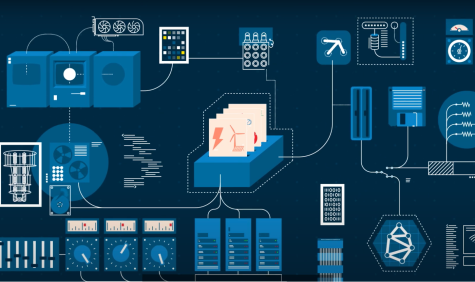Launch of SURFs Experimental Technologies Platform
>Everything about the Experimental Technologies Platform
The Netherlands' robust ict infrastructure has played a major role in allowing researchers to lead pioneering research initiatives. With the strong digitisation of research and the emergence of innovative ict technologies, the demand for advanced computing capacity will increase over the next decade.
Three key challenges in computing
With many scientific disciplines increasingly relying on computers as an indispensable analysis and research tool, we expect three main challenges:
- Moore's law is losing momentum: sustaining exponential growth in computing power by doubling the number of transistors on a chip every few years is becoming increasingly difficult to achieve, and improving CPU and GPU performance is reaching the fundamental limits of semiconductor technology. As a result, we are exploring alternative technologies to further expand computing power.
- With the growing demand for computing power, traditional computing infrastructure is becoming unsustainable in terms of energy consumption. We need to experiment with energy-efficient tools, techniques and algorithms to address this problem. Energy is a fundamental challenge for the future of computing, and it is essential for the whole community to work together on efficient computing.
- Increasingly complex scientific workflows are emerging that differ significantly from the traditional approach of monolithic simulation runs. These advanced workflows, such as multi-scale modelling, hybrid quantum classical computing, AI-assisted simulations, digital twins or large-scale data processing pipelines need new approaches. Consider the integration of computing, storage and network infrastructure and the integration of innovative technologies and methods, including optimised just-in-time scheduling and real-time streaming data processing, to effectively meet the specific requirements of these pioneering research efforts.
Close collaboration with researchers
To maintain the high standards of Dutch scientific research, it is necessary to maintain a continuous cycle of research, experimentation and improvement of our research infrastructure and applications. Working closely with researchers, we need to develop prototype workflows. To achieve this goal, we need a suitable environment where researchers and engineers can experiment with the latest technologies together without disrupting production services. Several international high-performance computing centres address these challenges in dedicated innovation labs. Well-known examples of these centres are BEAST at the Leibnitz Rechenzentrum in Munich, Excalibur in Cambridge and Innovative HPC Architectures at LLNL.
This is why we have now set up a stable innovation platform with specialised system administrators and technical assistance. The human element is essential, as collective expertise is needed to align scientific challenges with emerging technologies. These are exploratory innovation and engineering activities and not scientific computing or computer science research. Nevertheless, the platform will benefit informatics and applied scientific research.
The Experimental Technologies Platform should become an ecosystem where researchers, IT engineers, vendors and application developers come together to explore emerging concepts, methods and technologies. More specifically, the platform is dedicated to complex workflows, energy efficiency, creating a vibrant ecosystem of professionals and knowledge sharing.
